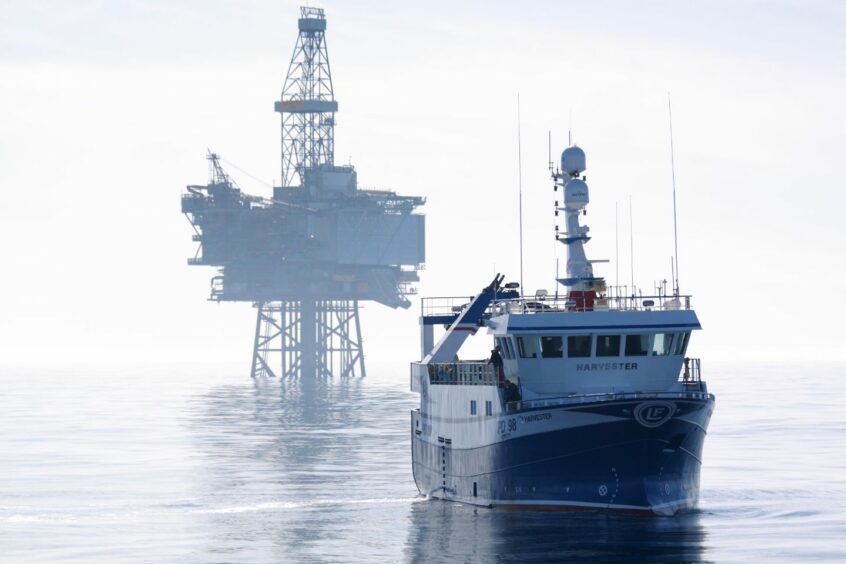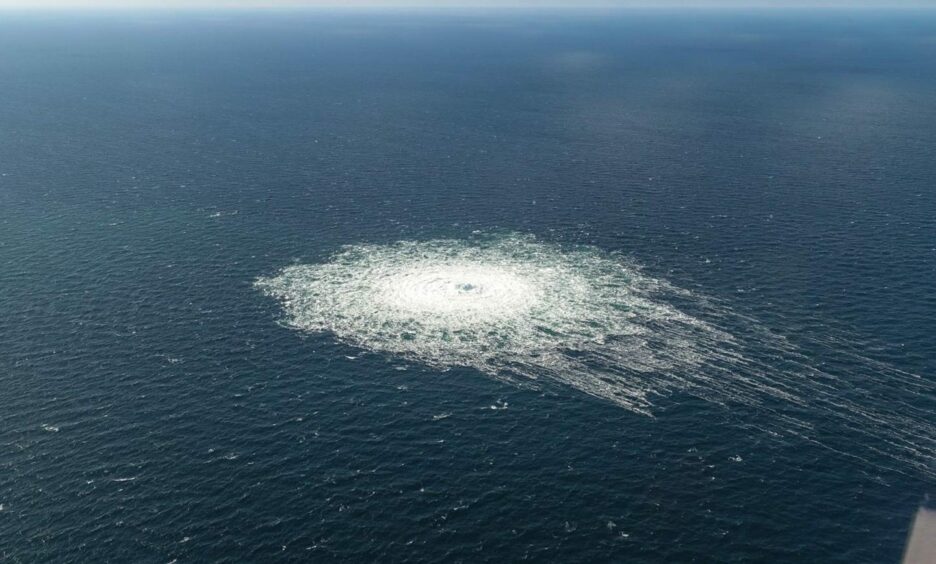
An industry veteran believes recent events in the North Sea have served as “wake up call” as to the potential vulnerability of oil and gas assets.
Andrew Hodgson, chairman of trade body the Global Underwater Hub (GUH), says “geopolitical risk” has moved up the agenda when it comes to safeguarding infrastructure.
In recent days, there have been numerous sightings of unknown drones flying near platforms in the Danish and Norwegian sectors of the North Sea.
There were unconfirmed reports that at least one Russian fishing vessel was spotted in the Gina Krog field at the time of a reported incident.
Norway has responded to the unusual activity by beefing up military protection around oil and gas installations.
Gas leaks detected on the Nord Stream 1 and 2 pipelines earlier this week, the result of a suspected sabotage, have simply compounded rising tensions.
Europe is currently locked in something of an energy war, sparked by moves to remove Russian oil and gas from supply, following the country’s attack on Ukraine.
While there’s no suggestion the UK North Sea is in any danger at present, Offshore Energies UK (OEUK) is reviewing controls in response to the heightened security concerns.
Mr Hodgson says recent events have underscored the importance of safeguarding critical infrastructure.
He said: “Whatever has happened with Nord Stream, it has been a little bit of a wake up call.
“In the UK, in the last decade or so, there has been a greater awareness at government level of the importance of subsea infrastructure, and therefore, the importance of security.
“Subsea infrastructure has gone from being important to critical, because a much higher portion of energy is being transmitted around.”
He added: “There has been a general awakening that security of those networks needs to be a higher priority than it was before – we can’t live without them.”
Mr Hodgson also stressed the role of the GUH, which covers defence as well as energy, in aiding with “threat protection”.
There were reports that in the run up to the Nord Stream leaks, Russia had been testing its latest underwater warfare technology.
Defence risk consultants Ake International said that given the numerous factors at play, including security of supply, it is “unsurprising that things are tense”.
The company has flagged a few options open to companies to mitigate risk, including testing existing procedures, training teams and sharing information.
There are additional tools that can also be deployed, including anti-drone technologies.
If things go up a notch, the Ministry of Defence, which is responsible for the security of North Sea offshore infrastructure, could deploy the Royal Navy for protection.
Ake said: “The asset operators have day to day responsibility for the safety and security of their assets.
“Procedures are in place, which should include crisis management procedures and response plans relative to security challenges that threats.
“In addition, the operating companies and asset crews are very aware of the familiar vessels operational in their vicinity and are duty bound to flag anything out of the ordinary. Security protection procedures will be in place involving multiple stakeholder organisations.”
Recommended for you


 © Supplied by Big Partnership
© Supplied by Big Partnership © Supplied by Denmark's Forsvaret
© Supplied by Denmark's Forsvaret